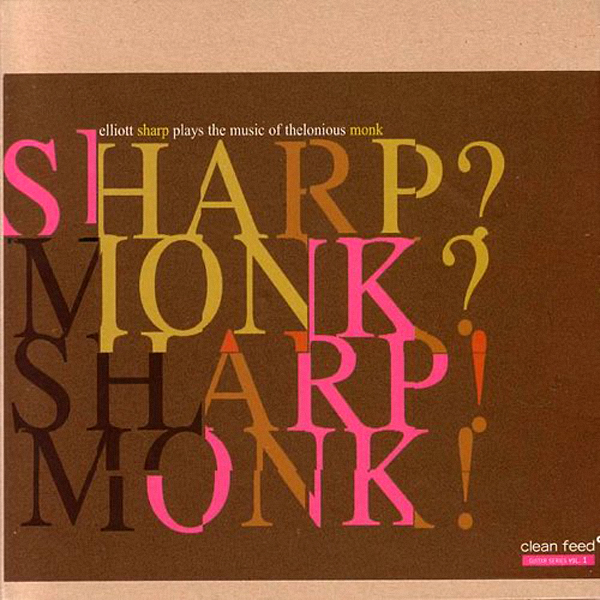
8,90 € Original price was: 8,90 €.3,45 €Current price is: 3,45 €.
For many, it’s quite a surprise to listen to Elliott Sharp performing Thelonious Monk’s tunes. Knowing his fondness for extreme situations in the fields of noise music, experimental rock and hardcore improvisation, his use of a selection of compositions considered “standards” of the be bop school, written by one of the top figures in the history of jazz, can seem a bit strange. To understand it, we have to go deeper in the musical universe of this guitarist who also plays other instruments – tenor and soprano saxophones, bass clarinet, computer electronics, etc. – and invented some string ones (the slab and the pantar, for instance). Sharp’s music can be extreme, expressionistic, “savage” (there’s something of the B’ambuti pygmies even in his pieces for classical string quartet) and with lots of feedback and distortion, but that’s only some of its characteristics. There’s other sides, like his love for mathematics, using the Fibonacci series and the golden numbers in a complex and demanding compositional work having everything to do with Xenakis’, Ligeti’s and Stockhausen’s concepts. Sure he likes to pump up the volume of his amplifier, but there’s structures in what he does, preventing it to be just aleatoric, and when you speak about structures you must point a master in structuring improvisation – Monk, precisely. Elliott Sharp himself says it all in the liner notes of “Sharp? Monk? Sharp! Monk!”: “My ears and heart tended towards sonic excess, but Monk was always there to clarify with his tart harmonies and percussive attack, his catchy but twisted melodies, and his incredibly rhythmic motion, always dry and economical.” This is not a paradox – even radical music needs to have rules of some kind, and Thelonious Monk, in its weird simplicity and openness, was a genious in using patterns and process figures. Sharp arranged very known scores like “Bemsha Swing”, “Round Midnight” and “Misterioso” for acoustic guitar, the Dell Arte Grande Bouche he prefers when playing blues, and the “fingerpicked bop” (his words) of this disc isn’t very far from the mother of the jazz idiom. His interpretations of the master’s ideas are unusual and maybe sometimes bizarre, but he connects him even more with the continuum of the African-American tradition. The notion that avant-garde playing is a refusal of the past is no longer true, if it ever was. A great record to cherish and keep.